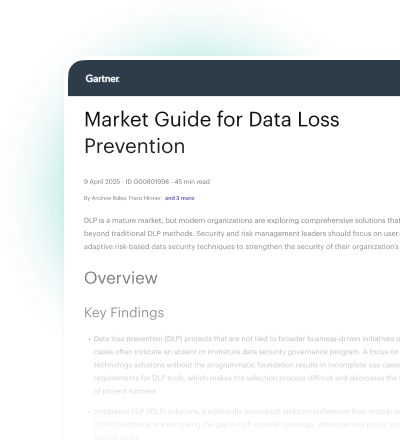Why CASBs are Gaining Prominence in Modern Cloud Security
0 분 읽기

Aditya Sahu
As organizations continue to embrace cloud services for greater efficiency and scalability, securing these cloud environments has become critical. CASBs are gaining widespread attention because they offer a vital shield for SaaS environments, delivering deep visibility into cloud usage, robust data protection, and real-time policy enforcement. Their ability to monitor user activities, safeguard sensitive information, and ensure regulatory compliance helps organizations stay ahead of evolving security challenges. In today's fast-paced digital world, CASBs are proving indispensable in maintaining control over cloud environments and mitigating potential risks.
What is CASB?
A Cloud Access Security Broker (CASB) serves as a security tool or service that acts as an intermediary between users and SaaS applications. Its primary role is to ensure consistent enforcement of security policies across all cloud applications. CASBs provide organizations with visibility into cloud usage, control over data and access, and safeguarding against threats and compliance violations.

CASBs are crucial for modern cloud security, offering visibility, data protection, threat detection, and compliance. They enforce security policies across cloud applications, helping organizations strengthen security, ensure compliance, and manage risk.
Key Functionalities of CASBs
- Visibility and Shadow IT Discovery: CASBs aid organizations in identifying and monitoring the use of unauthorized cloud applications (shadow IT), offering insights into cloud usage patterns and potential security risks.
- Data Security and Protection: CASBs enforce data loss prevention (DLP) policies to prevent unauthorized sharing or leakage of sensitive data within cloud environments. They also provide encryption capabilities to secure data both at rest and in transit.
- Threat Protection: Enhancing cloud security, CASBs detect and block malware, conduct anomaly detection to identify suspicious activities, and facilitate swift incident responses through thorough alerting mechanisms and real-time policy enforcement.
- Compliance Assurance: CASBs support organizations in meeting regulatory requirements such as GDPR and HIPAA by providing audit logs, compliance reports, and enforcing security policies aligned with industry standards.
- Access Control and Identity Management: Integrating with identity providers, CASBs manage user access and authentication across multiple cloud applications. They enforce conditional access control policies based on multiple contextual elements, including user type, device type, location and time of the day.
In essence, CASBs play a critical role in securing cloud environments, offering comprehensive visibility, robust control mechanisms, and proactive protection against evolving cybersecurity threats. By integrating CASBs into their security frameworks, organizations can strengthen their security posture, ensure regulatory compliance, and mitigate risks associated with cloud adoption effectively.

Aditya Sahu
더 많은 기사 읽기 Aditya SahuAditya Sahu serves as the Senior Technical Marketing Engineer at Forcepoint, focusing on Secure Service Edge (SSE) and other security products. With more than 14 years of expertise in cybersecurity, Aditya is dedicated to assisting organisations in safeguarding their data against constantly evolving cyber threats.
 Gartner Critical Capabilities for Single-Vendor SASE 2023Read the Report
Gartner Critical Capabilities for Single-Vendor SASE 2023Read the Report
X-Labs
Get insight, analysis & news straight to your inbox








